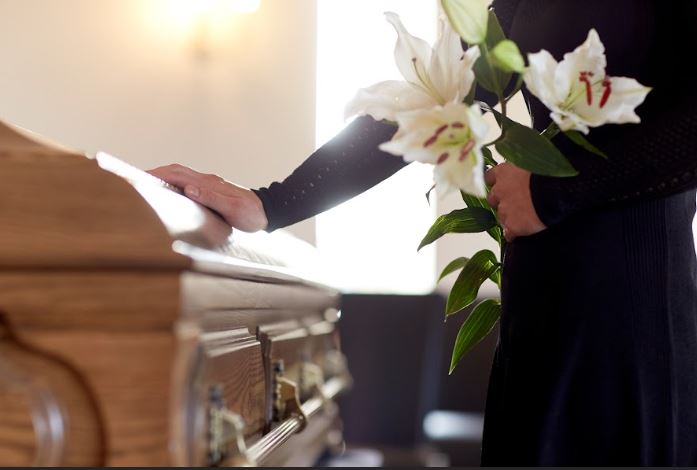Losing a loved one is a painful experience. However, navigating the repatriation process for a funeral is a different story. Understanding the legal, logistical, and practical aspects of this process is crucial.
If you’re in this situation or anticipate needing to repatriate a loved one’s body, keep reading. This blog provides a compassionate guide to grieving across borders. Start here.
What is Funeral Repatriation?
Funeral repatriation is the act of transporting a loved one’s body from one country to another for burial or cremation. It fulfills the deceased’s wishes and allows family and friends to mourn and memorialize in their home country.
To understand the procedures involved, here are some aspects to consider:
- Timeframe
The timeframe for repatriating a loved one’s body varies depending on several factors. It includes legal procedures, transportation arrangements, and coordination between funeral homes in both countries. Prompt communication with officials and funeral service providers is crucial as the process can last from days to weeks.
For instance, if a family member passes away in another country, the first step is to contact the local embassy or consulate. They can guide you on necessary paperwork and steps, helping establish a suitable timeframe.
- Legal Requirements
Funeral repatriation requires adhering to legal formalities in foreign and home countries. So, familiarize yourself with each country’s requirements for a smooth process.
For example, you may need a death certificate, no-objection letter, and burial/cremation permit in a foreign country. In the home country, you must arrange permits and clearances for arrival and burial/cremation.
- Transportation Arrangements
Transporting the deceased’s body is a crucial part of funeral repatriation. Coordination is needed between the funeral home in the foreign and home country to ensure a smooth transfer.
There are various methods of transportation to consider, such as:
- Air Transportation
Transporting the deceased’s body is a standard and efficient method of funeral repatriation. Reputable airlines handle human remains and ensure paperwork is in order. Then, funeral homes can coordinate with airlines and ensure respectful body handling.
- Land or Sea Transportation
Some situations require land or sea transportation due to personal preferences. For sea transportation, the body is embalmed and placed in a hermetically sealed coffin lined with zinc, then transported in a refrigerated shipping container. Meanwhile, land transportation involves hearses, funeral vans, or mortuary vehicles.
Consider direct flights, suitable routes, cost, and feasibility when making transportation arrangements. The foreign and home country funeral homes can help choose the most convenient mode of transportation.
- Cultural Considerations
It’s also vital to consider any specific cultural or religious requirements for transportation. Here are some examples:
- Islam or Judaism require specific guidelines and rituals when transporting a deceased loved one’s body. This may include the use of special containers, specific prayers or ceremonies, and restrictions on the timing or handling of the body.
- Some cultures may have preferences for specific modes of transportation or burial methods. Some cultures practice cremation or embalming, while Tibetan Buddhists prefer sky burial.
Considering these cultural factors ensures that your loved one’s cultural or religious beliefs are respected during repatriation.

- Funeral Services and Burial or Cremation Arrangements
After the body is repatriated, funeral service and burial or cremation must be arranged in the home country. This may involve the following:
- Coordinating with a Local Funeral Home
This step is essential for a proper funeral service and family-requested burial or cremation. Repatriation-experienced funeral homes can advise on options and coordinate with authorities and service providers.
- Documentation and Permits
It’s crucial to organize all necessary documentation, including the death certificate and burial or cremation permit. The funeral or family may handle this step, depending on the situation.
- Funeral Service
During grief, family and friends gather at the funeral to honor and remember the deceased. This can occur at a place of worship, a funeral home, or any other appropriate venue. Consider cultural and religious preferences when planning the funeral.
- Burial/Cremation Arrangements
The final step in repatriation is burial or cremation. This usually follows the family’s wishes and legal or cultural requirements. The burial or cremation’s location and circumstances will determine the necessary permits and clearance.
During this process, it’s best to inform the funeral home regarding the deceased’s or family’s wishes. They can help ensure the funeral service and final disposition meet these wishes and advise on legal requirements.
- Emotional Support and Grief Resources
Navigating grief across borders can be an emotionally challenging experience. It’s advisable to seek emotional support and connection during this time. Here are your options:
- Contact family, friends, or support groups for comfort and understanding.
- Consider hiring cross-border grief counselors or therapists.
- Browse grief and funeral repatriation resources, forums, and support groups online. These platforms can offer advice, support, and information during this difficult time.
With the support of these resources, you can handle funeral repatriation with compassion and clarity.
Finding Solace Beyond Borders of Grief
In conclusion, repatriating a loved one’s body for a funeral requires compassion and understanding. Consider the above factors to honor your loved one and find comfort during this difficult time. Remember, everybody has their own unique grieving process, and it’s essential to be patient with yourself and others.
Sending heartfelt condolences to you and your family as you navigate grief across borders.


